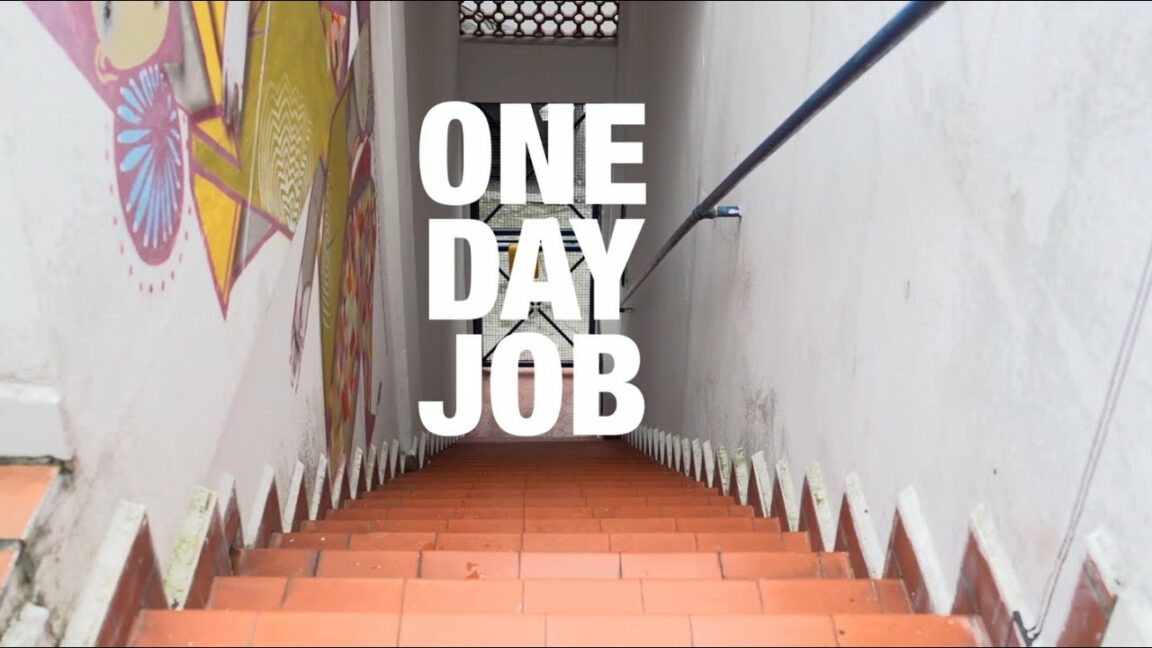What is a job hopping?
What Is Job-Hopping, and Why Do People Do It? A job-hopper stays at a job for approximately one to two years. Some job-hoppers are dissatisfied with where a particular job leads in the future, so they hop to another job with a better career path.
Then, How long is too short at a job?
Experts agree that you should stay at your place of employment for a minimum of two years. It’s enough time to learn new skills and build your qualifications, while short enough to show that you value growing in your career.
Is job hopping risky?
Job-hopping may still be viewed as risky behaviour. Changing jobs every three to four years is one thing, but more frequent moves could indicate the inability to dig into a role and therefore put the employer on guard.
Is it OK to leave job after 1 year?
And although many think that one year at a company is long enough, the statistics say otherwise: 18 months is the bare minimum, but 24 months is the safest bet. This means that if you want to quit or see a possible firing on the horizon, you should try toughing it out for at least a year and a half, suggests the site.
How many jobs is too many?
The majority of executives polled said that holding six or more jobs within a ten-year span is too much. However, 51% of CFOs in larger companies said that a history of frequent changes is not important if the candidate is the right fit.
Should I quit my job if I hate it?
Sometimes there are steps you can take to improve a job—even one you really dislike. But often, if you truly hate your job, you might need to quit. Even when you hate your job, and are eager to quit, it’s important to leave your job on good terms with your employer and coworkers, if possible.
When should you quit a job?
Read more about
- It’s no longer encouraging your growth.
- You’ve achieved what you set out to achieve.
- You actively look for ways to avoid your job.
- You regularly approach work with exhaustion, burnout, or dread.
- It’s causing you to develop bad habits.
- Your workplace has become unhealthy.
How do you survive a job you hate?
Here are my top tips to cope until you can find a career that truly lights you up inside.
- Identify a goal. The first and most important thing is to have a goal in mind.
- Develop your skills.
- Take advantage of training.
- Test and learn.
- Set boundaries.
- Work on your personal brand.
- Find someone to confide in.
- Fill your tank.
How long should you stay at a job you hate?
Many recommend employees spend at least two years at a company, or, for those later in their careers, three to five years. For a first job I’ve often heard there’s a one year minimum, but, after my first job wasn’t quite what I expected, I knew it was time to move on after nine months.
How long should you stay at a job in your 20s?
It’s often suggested that young employees stay at each company for at least two years, and we’re reminded again and again of how vital the career ladder is.
Is it OK to change jobs every 2 years?
You Should Plan On Switching Jobs Every Three Years For The Rest Of Your Life.
How long should you stay at first job?
The Most Common Advice is to Stay Put for at Least a Year
Most experts seem to agree that it generally takes at least one year to make yourself marketable to managers the next rung up on the career ladder.
Is 6 months at a job enough?
That’s good news for young workers who feel their new jobs have been overhyped during the Great Resignation. A recent survey from The Muse found 80% of millennial and Gen Z jobseekers say it’s acceptable to leave a new job before six months if it doesn’t live up to your expectations.
Is job hopping normal?
The Bureau of Labor Statistics shared reports finding that workers are staying in a job for a median time frame of just over 4 years. Millennials although not the only reason for this trend are a big driving factor behind this due to work/life balance being at the top of their priority list.
Why do I job hop so much?
Job-hoppers hop for various reasons. More often than not, they don’t know what they are getting into. Sometimes, it’s because they don’t know what they want, and therefore, they are not ready for the challenges that lie ahead of them. In my opinion, changing jobs often affects your career in a negative manner.
Is it OK to change job every year?
Job hopping is fine, if it’s done for the right reasons and in the right way. But, it’s hard to justify job changes when they are super frequent. It’s one thing to change jobs every few years in order to earn more money, learn new skills or take on a fresh challenge.
What to do when your job makes you cry?
Here’s how to bounce back with strength and professionalism.
- Reframe the impact. Crying at work is not career-ending.
- Give yourself space. You won’t be at your best if you’re emotionally hijacked.
- Address crying courageously.
- Focus on follow up.
- Have a plan for next time.
- Seek more help if you need it.
Can your work cause depression?
“Any workplace or job can be a potential cause or a contributing factor for depression depending on the level of stress and available support at the workplace,” said Rashmi Parmar, MD, a psychiatrist at Community Psychiatry.
Do I hate my job or am I just lazy?
Difference Between Being Burned Out and Lazy
Reduced or low productivity. Seeming constantly distracted. Having a dislike towards the job. Feeling overworked.
Who is a toxic boss?
Toxic bosses love taking credit for other people’s work. Moreover, they also like the power they get so they can boss around their subordinates. They might even try to pass off their duties to you making you work overtime and not getting any extra income, but without giving you the credit you deserve, of course.
Should I quit or get fired?
It’s theoretically better for your reputation if you resign because it makes it look like the decision was yours and not your company’s. However, if you leave voluntarily, you may not be entitled to the type of unemployment compensation you might be able to receive if you were fired.
Why good employees quit?
It may seem like a simple thing, but one reason why good employees quit is that they don’t feel like they’re respected or trusted at work. Whether they feel like they’re not respected by their boss or by their coworkers, these negative feelings can build up, eventually causing them to decide to leave.
How do I find a career I love?
How to find a career you love
- Identify your goals and values. Carefully think about your own goals for your career.
- Brainstorm careers. Once you have articulated your career goals and your own values, you can brainstorm types of vocations that might fulfill both.
- Job shadow, intern or temp.
- Stay flexible.
- Reflect and assess.
How many people hate their jobs?
Hate your job? You aren’t alone. 50% of workers dislike their job. Of course, since how we spend our days is how we spend our lives, that means a lot of workers also don’t like their lives.
What are the signs of a toxic workplace?
1. A Toxic Workplace May Have Poor Communication
- Overall lack of communication is a core issue.
- Constant lack of clarity around projects.
- Different employees receive different messages.
- Passive-aggressive communication.
- Weak listening skills.
- Constant “off-hours” communication.



